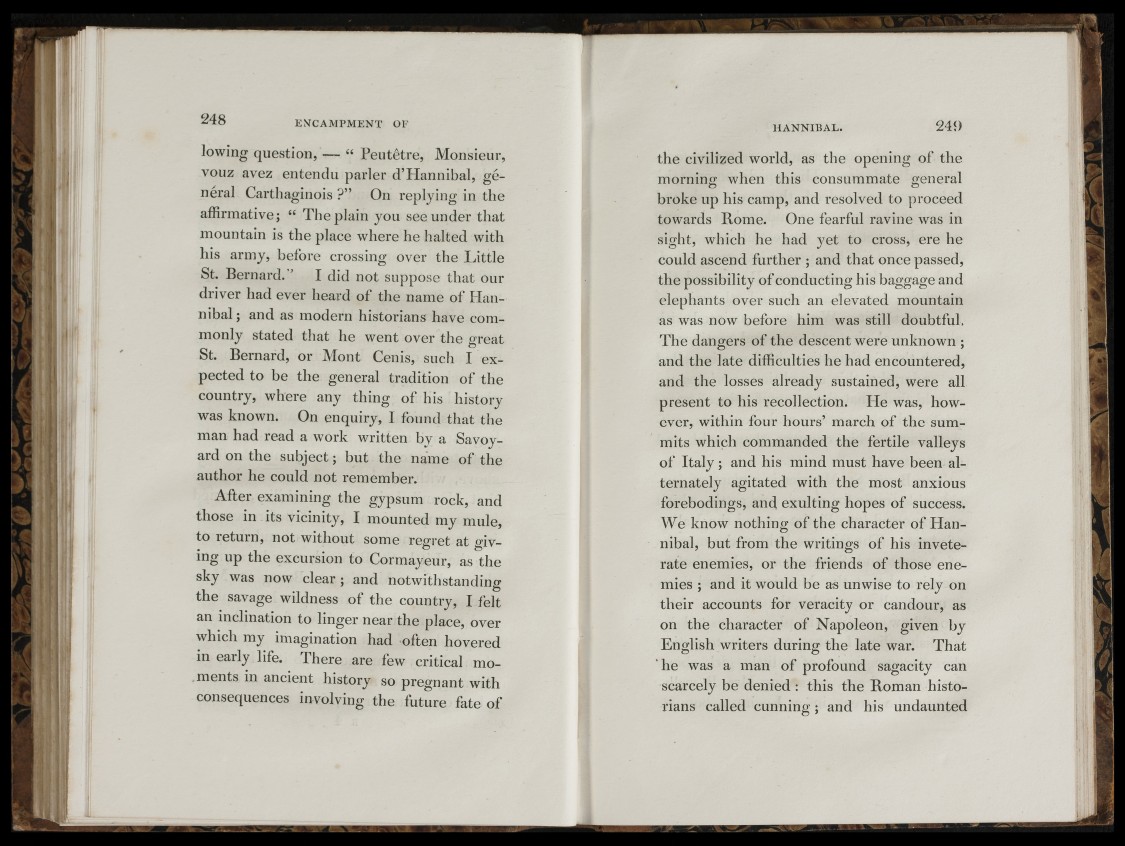
I
m
l à
i
; I "vr
‘Ui
:|5i"
fj
; li
. ' r . '[1
lowing question, — “ Peutetre, Monsieur,
vouz avez entendu parler d’Hannibal, général
Carthaginois ?” On replying in the
affirmative; “ The plain you see under that
mountain is the place where he halted with
his army, before crossing over the Little
St. Bernard. ’ I did not suppose that our
driver had ever heard of tJie name of Hannibal
; and as modern historians have commonly
stated that he went over the great
St. Bernard, or Mont Cenis, such I expected
to be the general tradition of the
country, where any thing of his history
was known. On enquiry, I found that the
man had read a work written by a Savoyard
on the subject ; but the name of the
author he could not remember.
After examining the gypsum rock, and
those in its vicinity, I mounted my mule,
to return, not without some regret at giving
up the excursion to Cormayeur, as the
sky was now clear ; and notwithstanding
the savage wildness of the country, I felt
an inclination to linger near the place, over
which my imagination had often hovered
m early life. There are few critical moments
in ancient history so pregnant with
consequences involving the future fate of
H A N N IB A L . 249
the civilized world, as the opening of the
mornin«O: when this consummate co5eueral
broke up his camp, and resolved to proceed
towards Borne. One fearful ravine was in
sight, which he had yet to cross, ere he
could ascend further ; and that once passed,
the possibility of conducting his baggage and
elephants over such an elevated mountain
as was now before him was still doubtful.
The dangers of the descent were unknown ;
and the late difficulties he had encountered,
and the losses already sustained, were all
present to his recollection. He was, however,
within four hours’ march of the summits
which commanded the fertile valleys
of Ita ly ; and his mind must have been alternately
agitated with the most anxious
forebodings, and exulting hopes of success.
We know nothing of the character of Hannibal,
but from the writings of his inveterate
enemies, or the friends of those enemies
; and it would be a« unwise to rely on
their accounts for veracity or candour, as
on the character of Napoleon, given by
English writers during the late war. That
‘ he was a man of profound sagacity can
scarcely be denied : this the Boman historians
called cunning ; and his undaunted